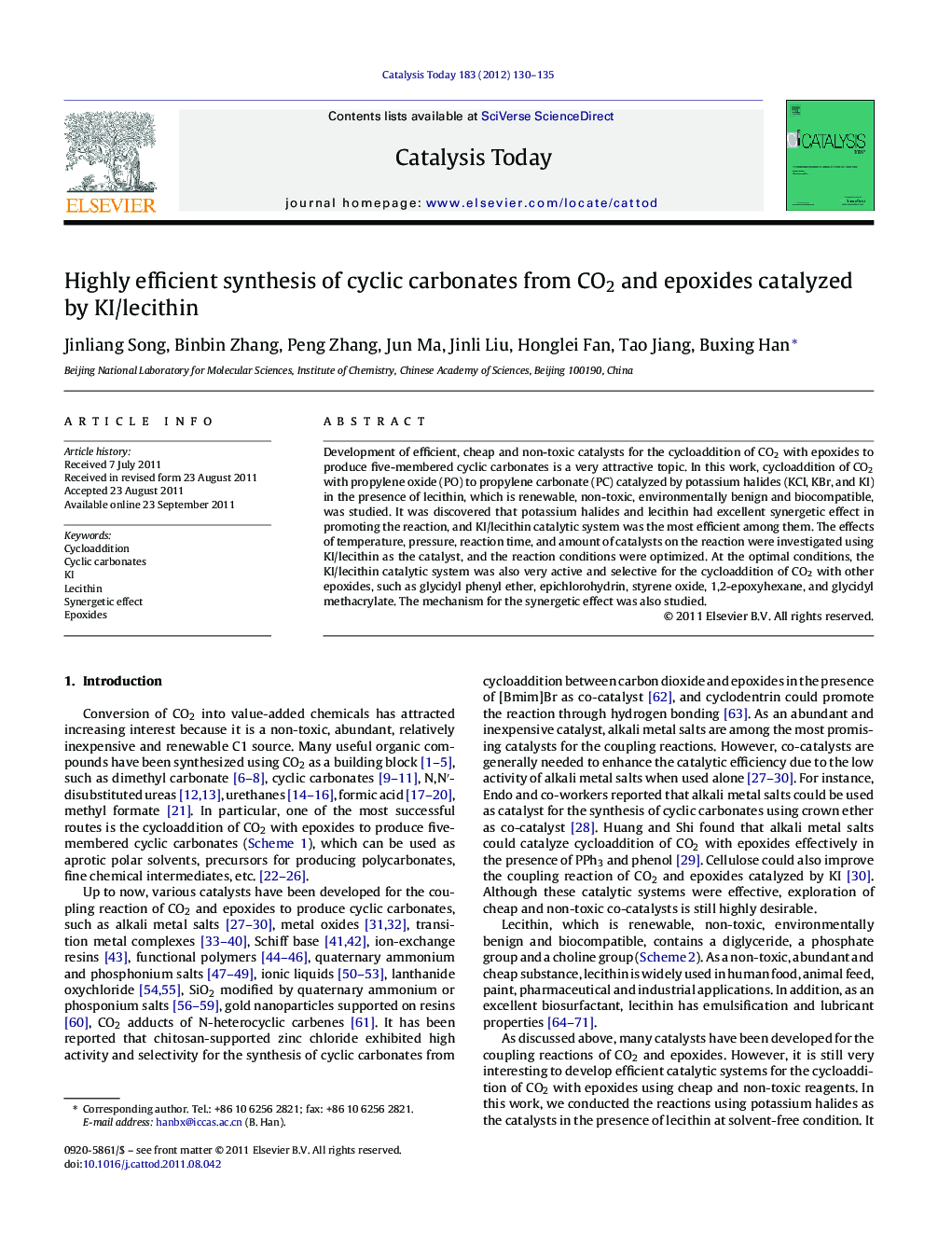| Article ID | Journal | Published Year | Pages | File Type |
|---|---|---|---|---|
| 55424 | Catalysis Today | 2012 | 6 Pages |
Development of efficient, cheap and non-toxic catalysts for the cycloaddition of CO2 with epoxides to produce five-membered cyclic carbonates is a very attractive topic. In this work, cycloaddition of CO2 with propylene oxide (PO) to propylene carbonate (PC) catalyzed by potassium halides (KCl, KBr, and KI) in the presence of lecithin, which is renewable, non-toxic, environmentally benign and biocompatible, was studied. It was discovered that potassium halides and lecithin had excellent synergetic effect in promoting the reaction, and KI/lecithin catalytic system was the most efficient among them. The effects of temperature, pressure, reaction time, and amount of catalysts on the reaction were investigated using KI/lecithin as the catalyst, and the reaction conditions were optimized. At the optimal conditions, the KI/lecithin catalytic system was also very active and selective for the cycloaddition of CO2 with other epoxides, such as glycidyl phenyl ether, epichlorohydrin, styrene oxide, 1,2-epoxyhexane, and glycidyl methacrylate. The mechanism for the synergetic effect was also studied.
Graphical abstractFigure optionsDownload full-size imageDownload high-quality image (73 K)Download as PowerPoint slideHighlights► In this work we study the cycloaddition of CO2 with epoxides catalyzed by KI/lecithin. ► Lecithin and KI had excellent synergetic effect in promoting the reaction. ► The KI/lecithin catalytic system was very active and selective for the reaction. ► The mechanism for the synergetic effect was also studied.
